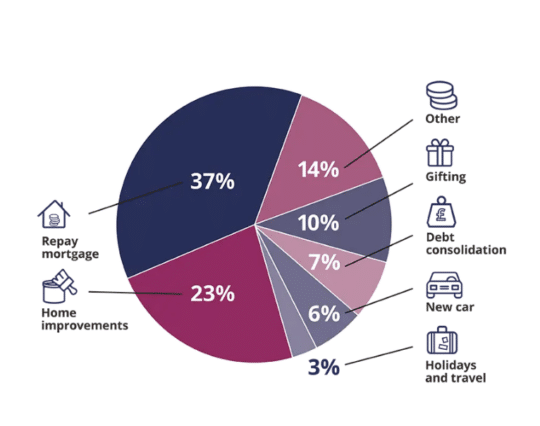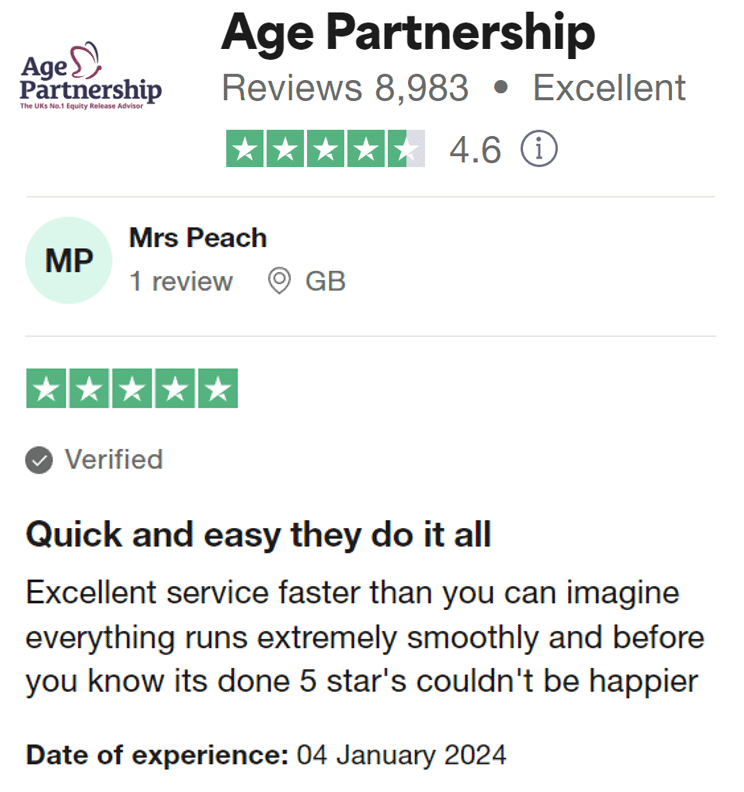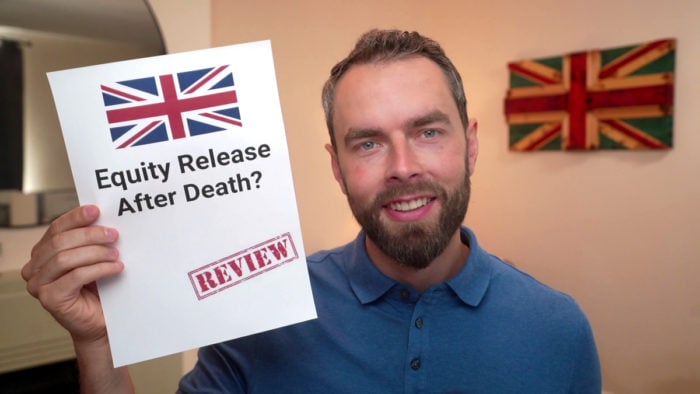Can You Get Equity Release on a Retirement Flat?
Our preferred equity release adviser is Age Partnership. For free and impartial money advice you can visit MoneyHelper.

Our preferred equity release adviser is Age Partnership. For free and impartial money advice you can visit MoneyHelper.
Are you keen to learn about equity release on a retirement flat? In the UK, it’s possible to do this, but there are some things you need to know.
Our website helps over 7,000 people each month to understand more about equity release. In this article, we’ll cover:
- What equity release is and how it works.
- The difference between leasehold, freehold, and commonhold.
- The conditions needed to get equity release on a retirement flat.
- The number of years left on your lease that you need for equity release.
- What you can do if your lease is too short for equity release.
We know that equity release can seem tricky, but don’t worry; we’re here to make it clear for you. We have lots of useful tips to help you understand the process.
Let’s dive in.
How does it work?
Does equity release with no monthly repayments sound too good to be true? We often get this question from people, so we’d like to provide a clear answer once and for all.

In short, the loan still has to be repaid, but it only gets repaid through the sale of the residential property.
The lender can only force the sale when the last surviving homeowner either:
- Passes away
- Moves into long-term care
In other words, as soon as the homeowners aren’t living in their home anymore, the lender can recover the debt. The downside is that the homeowners won’t be able to pass their property on to loved ones, and the value of their estate is decreased.
The most common method of equity release is a lifetime mortgage, but there are some variations, such as an enhanced lifetime mortgage and an interest-only lifetime mortgage.
» TAKE ACTION NOW: Find out how much equity you could release
Can you take it out on age-restricted properties?
The majority of equity release companies don’t allow people to take out a lifetime mortgage on an age-restricted property. But it’s not impossible. You may still find a small number of lenders that will allow equity release on retirement flats.
One of the reasons that lenders won’t often provide equity release on retirement properties is that these properties are more difficult to sell on the open market, which could make recovering the debt with an eventual sale more troublesome. In a nutshell, the lender faces greater risk when dealing with retirement flats.
Retirement flats aren’t the only type of property that can be difficult to secure an equity release plan. You might also run into trouble when trying to take out a lifetime mortgage on leasehold and commonhold properties.
How equity release could help
More than 2 million people have used Age Partnership to release equity since 2004.
How your money is up to you, but here’s what their customers do…
Find out how much equity you could release by clicking the button below.
In partnership with Age Partnership.
Can you get it on a leasehold flat or house?
Yes, you can take out an equity release plan on a leasehold property but the equity release company will make its decision based on the number of years left on the lease and some other factors.
You might have to extend your lease before you’re able to take out an equity release plan on the leasehold property.
How many years do you need left on your lease?
Individual lenders apply their own criteria when assessing leasehold properties for an equity release plan. In terms of the leasehold, many lenders require at least 75 years left on the lease, whereas some will ask for at least 90 or even 120 years left on the lease.
Join thousands of others who release equity
Age Partnership have helped over 2 million people release equity from their home.

Mrs Wareham
“I am more than pleased to have taken out Equity Release with Age Partnership.”
Reviews shown are for Age Partnership. Search powered by Age Partnership.
What happens if your lease is too short?
If the equity release company states that your current lease is too short to be approved for a lifetime mortgage, they will reject the application.
You could consider extending your lease before making an equity release application, but there will be costs involved.
Can you use it to extend your lease?
Yes, it’s possible to use some of the money from your equity release plan to extend the lease. For example, some lenders will approve the lifetime mortgage on the condition that some of the funds directly go towards extending the lease.
This would allow you to take out an equity release plan on a leasehold property when the property is deemed to have too short of a remaining lease. It can be a solution when you cannot afford to extend the lease without receiving the equity release loan first.
Doing this may also extend the equity release timescale.
Quick recap!
Equity release plans can be taken out on age-restricted properties such as retirement flats, but the number of lenders willing to offer this is limited.
The majority of equity release companies don’t provide lifetime mortgages and home reversion plans on retirement properties because they are harder to sell on the property market.


